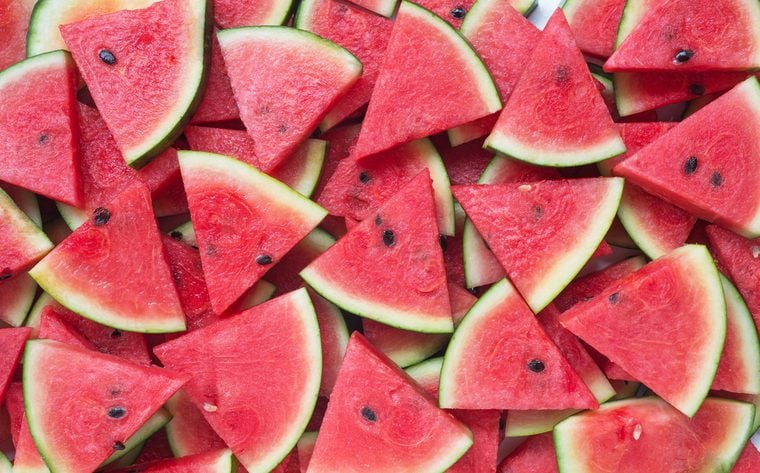
Watermelon
This summer treat is sweet and refreshing, but it is one of the sneakier foods that cause gas and stomach bloat. Watermelon is high in fructose, a naturally occurring sugar that is often incompletely absorbed by our GI system, leading to gas. Fructose malabsorption is a condition in which the body doesn’t digest fructose well, which in turn causes it to become fermented in the colon, according to the University of Wisconsin-Madison School of Medicine and Public Health. This can lead to gas, bloating, and diarrhea. among other things.
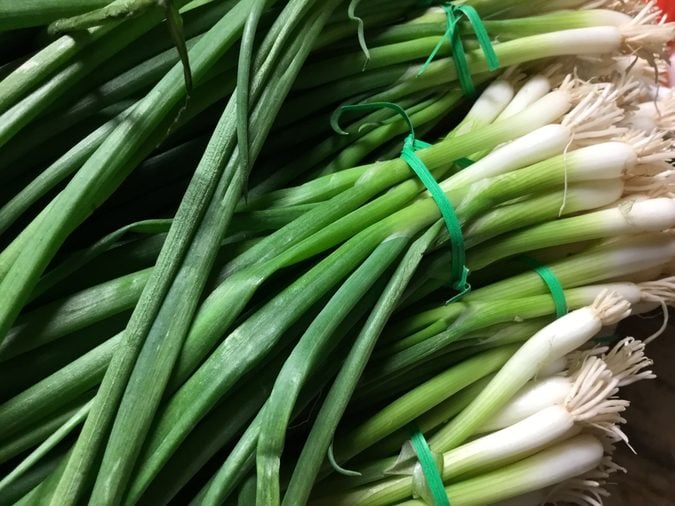
Scallions (and other aromatics)
Veggies with strong flavors, like scallions (just the white part), are high in fructans, a type of fiber made up mostly of fructose molecules, making them foods that cause gas. Humans lack the enzymes to break down fructans, so no one is able to fully digest them, leading to gut problems like gas and bloating, according to a study published in Current Gastroenterology Reports. Here are 8 more foods GI doctors always avoid.
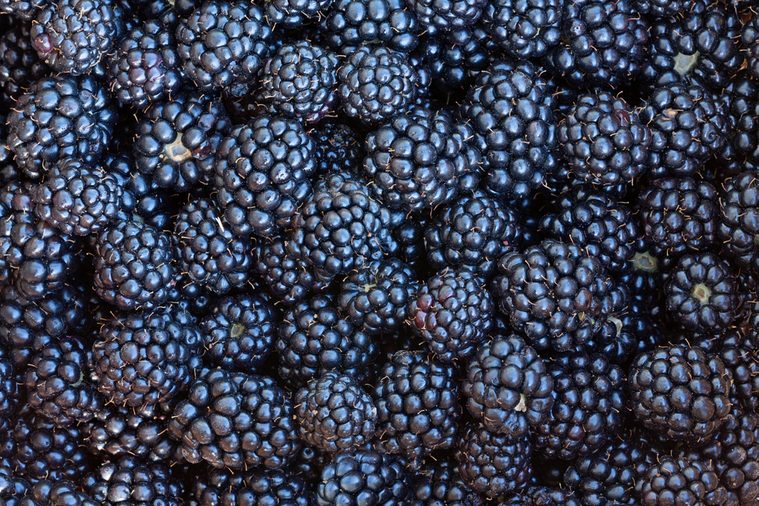
Blackberries
Blackberries are rich in antioxidants, but they’re also packed with polyols, the main component in sugar substitutes (which are often blamed for abdominal distress). Polyols tend to hang around our digestive system for a long time and usually aren’t completely absorbed, which can lead to bloating or excessive flatulence.
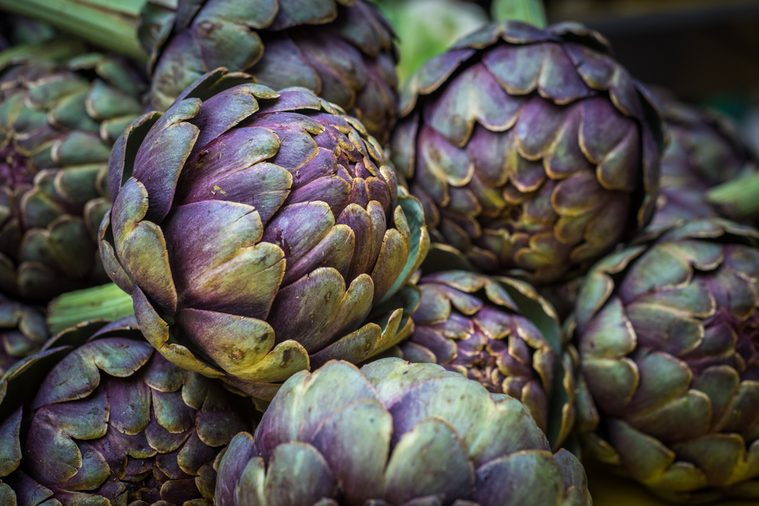
Artichokes
Beware of this veggie if you’re trying to battle bloat. It’s high in fructans, a fiber that is difficult to digest and found in foods that cause gas and bloating problems. These are the most common stomach pains and what they mean.
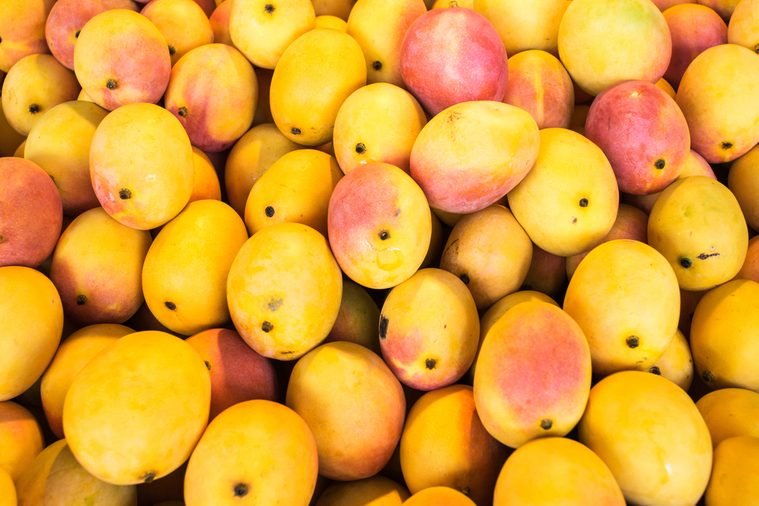
Mangoes
Mango is one fruit that contains more fructose than glucose, an imbalance that makes it harder for the fructose to be absorbed by our body, reports the University of Virginia Health System. When this happens, bloating or other stomach problems can arise.
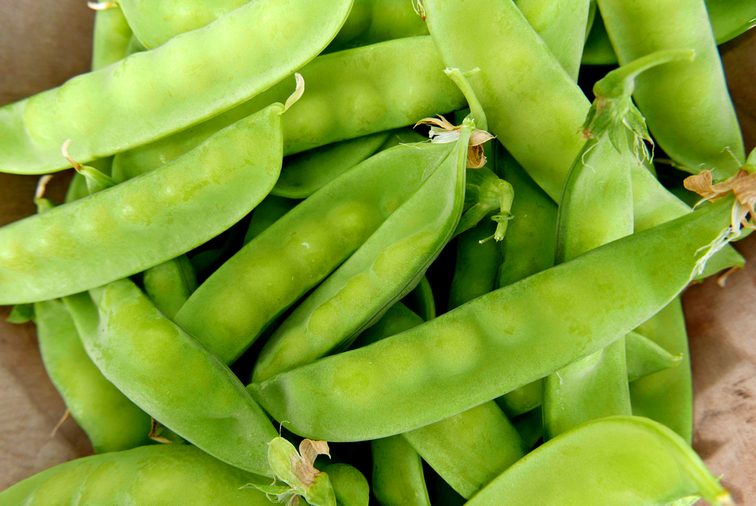
Snow peas
The snap of a snow pea is refreshing, but it can leave your belly feeling anything but. Snow peas contain galacto-oligosaccharides (GOS), a chain of sugars that are hard to digest and end up feeding gut bacteria, a cause of bloating. Snow peas also contain fructans and are high in polyols, which are often only partially absorbed by the body, another cause of stomach problems. Instead, stick with the best foods for your belly.
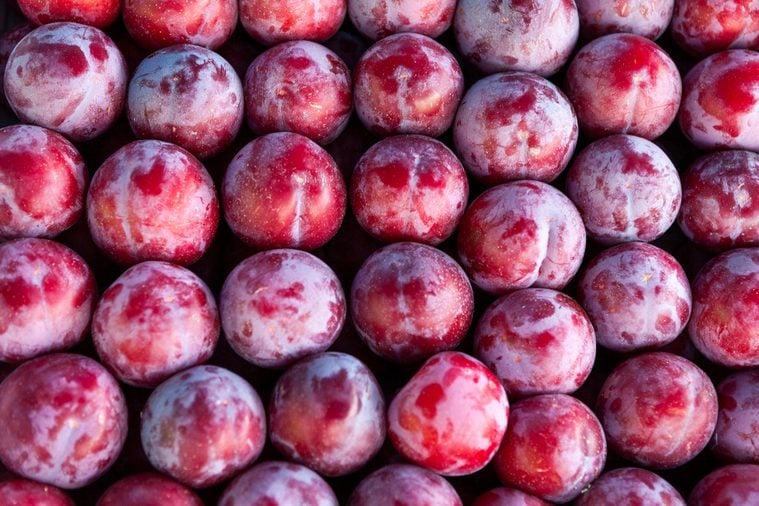
Plums
Plums are packed with polyols, often called sugar alcohols because of their structure (they look like both sugar and alcohol) and because they’re fermented by gut bacteria, which leads to stomach problems like bloating.
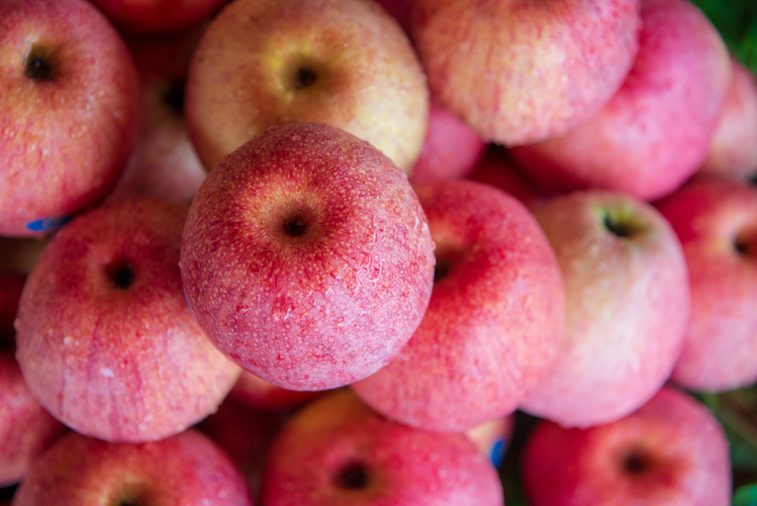
Apples
Apples can be a trigger for those who suffer from fructose malabsorption, which occurs when the natural sugar is unable to be absorbed by the body. Fructose malabsorption leads to bloating, diarrhea, and other digestive issues. Here are more causes of bloat that you should know.
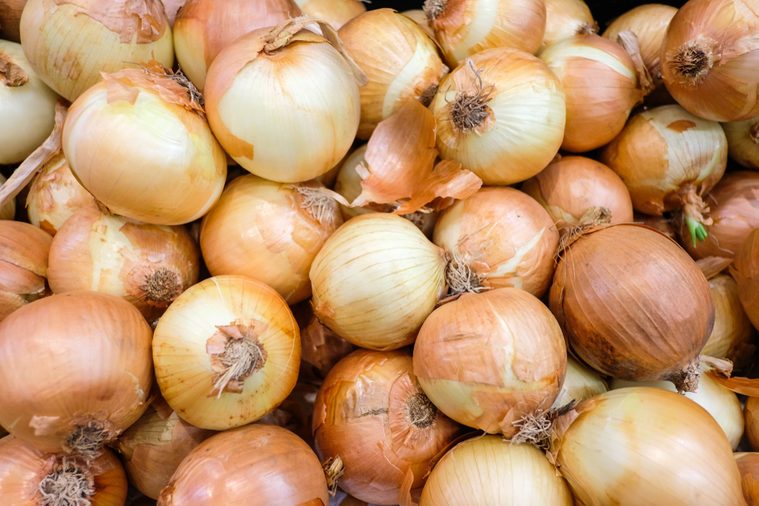
Onions
Onions are in the same family as scallions and can cause the same problems (along with shallots and leeks). Like other foods that cause gas, onions contains a natural sugar called fructose. This sugar contributes to gas when bacteria in the intestines break it down, according to the Canadian Society of Intestinal Research. Onions are also considered high FODMAP foods, meaning they contain types of carbohydrates that cause gastrointestinal problems such as bloating. FODMAP stands for fermentable oligosaccharides, disaccharides, monosaccharides and polyols and it’s thought that limiting foods with these hard-to-digest short-chain carbohydrates may benefit people with irritable bowel syndrome or other digestion problems.
Learn more about the low FODMAP diet.
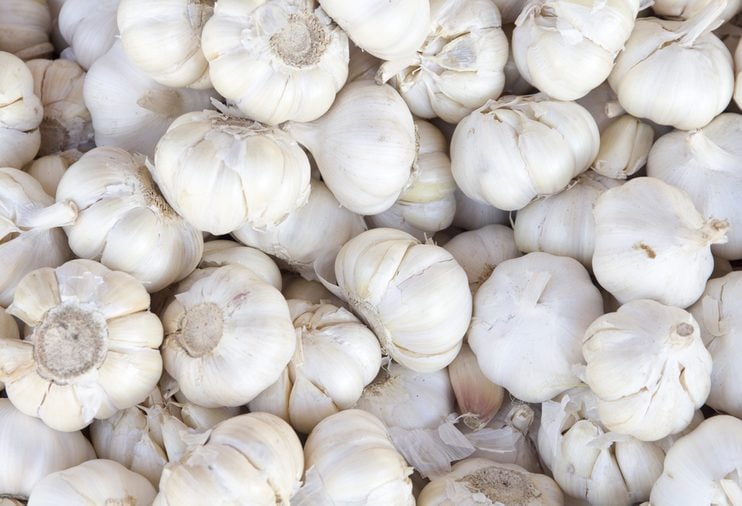
Garlic
Another high FODMAP food is garlic (which is in the same family as scallions and onions), making it another one of the many foods that causes gas. But before you cut out garlic entirely, know it also has many health benefits. Cleveland Clinic reports some of garlic’s positive effects include boosting immunity and working as an anti-inflammatory. Next, don’t miss these 21 health secrets your gut is trying to tell you.
Excerpted from the book 21-Day Tummy Diet.
